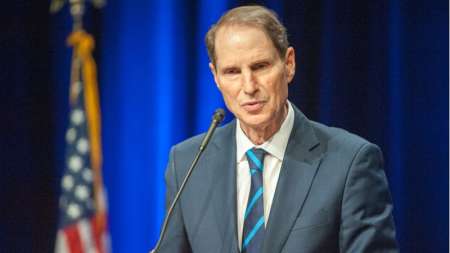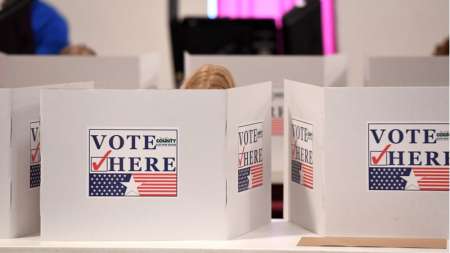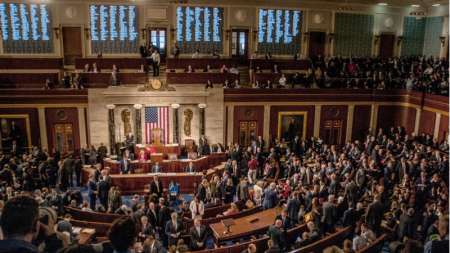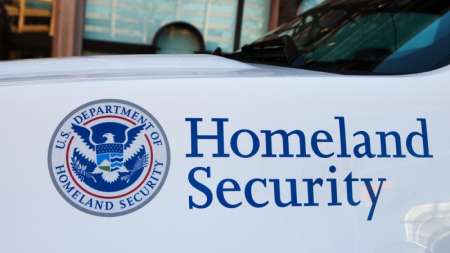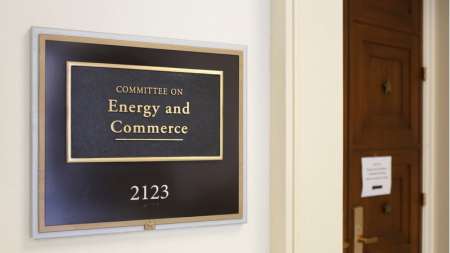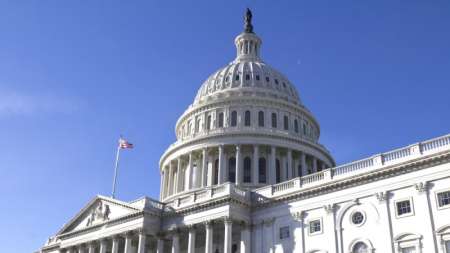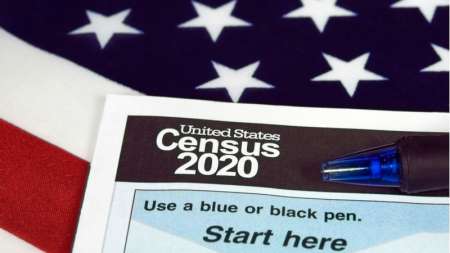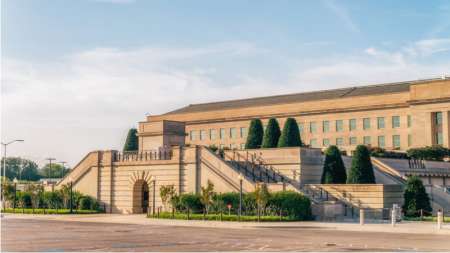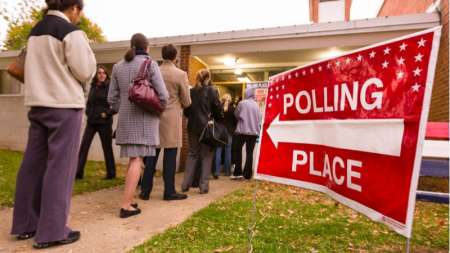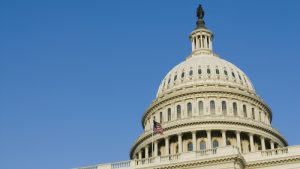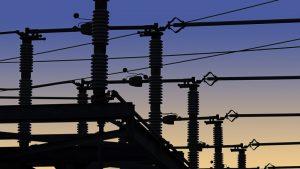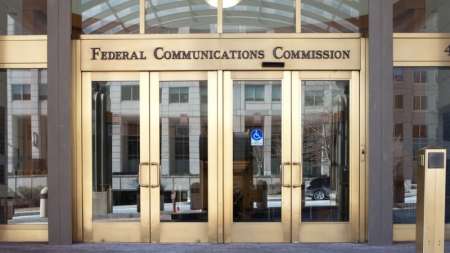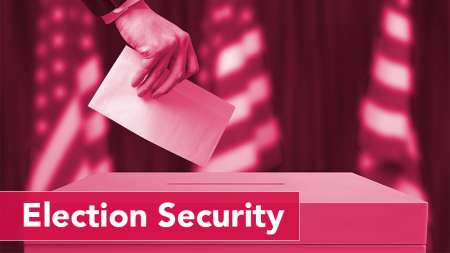Following the Federal government’s settlement with Equifax regarding its 2017 data breach, Sen. Ron Wyden, D-Ore., pledged to renew his push towards passing data privacy legislation. In a statement on July 22, Wyden urged the passage of his Consumer Data Protection Act, which he initially introduced in November of 2018. […]
The Senate on July 8 unanimously approved the Defending the Integrity of Voting Systems Act, which was sponsored by Sens. Sheldon Whitehouse, D-R.I., Richard Blumenthal, D-Conn., and Lindsey Graham, R-S.C. […]
The House of Representatives has scheduled a vote this week on a bill that would direct the Federal Communications Commission (FCC) to craft rules regarding unwanted robocall and robotext messages that make sure those communications comply with the consumer protection and privacy purposes of Section 227 of the Communications Act. […]
A Congressional Budget Office (CBO) report estimates that the State and Local Cybersecurity Act of 2019 (S. 1846) would cost the government $31 million to implement between 2019 and 2024. […]
A bill introduced on July 18 by Rep. Dusty Johnson, R-S.D., would establish a rotating consortium of universities with cyber expertise to advise the Department of Defense (DoD) on cybersecurity issues and coordinate academic feedback to DoD requests for assistance. […]
The Senate Judiciary Committee Tech Task Force met for the first time on July 18. The task force is charged with addressing tech industry issues on privacy, data security, censorship, antitrust and competition. […]
The Department of Homeland Security (DHS) issued a request for information (RFI) on July 16 for Information Assurance Compliance System (IACS) tools that can support FISMA (Federal Information Security Modernization Act) compliance checks and reporting. […]
The House Energy and Commerce Committee voted to approve four bipartisan bills related to cybersecurity and energy grid security on July 17, and sent those pieces of legislation to the full House for consideration. […]
Legislation introduced in the House this week by the co-chairs of the House High-Tech Caucus would order up some initial steps that could lead to the U.S. increasing its influence in creating international standards for internet of things (IoT) devices. […]
Energy Department (DoE) officials and energy-sector security experts briefed House members today on a range of cybersecurity initiatives and other tech advancements they could consider as Congress works to create electric grid modernization legislation. […]
The Census Bureau still has work to do to prepare its IT systems and cybersecurity, but during a Senate Homeland Security and Governmental Affairs hearing, the director of the bureau and Government Accountability Office (GAO) officials noted that the 2020 Census is making progress on IT issues and is on track. […]
The Senate Special Committee on Aging heard testimony today regarding the impact of robocall scams on the elderly, as well as how Congress can help put an end to the calls. […]
Members of the House and Senate introduced a bipartisan bill on July 16 to bar both Huawei from U.S. 5G networks and U.S. companies from doing business with the Chinese telecommunications company. […]
Reps. Elijah Cummings, D-Md., and Gerry Connolly, D-Va., strongly voiced doubts that the Trump Administration’s plan to merge the Office of Personnel Management (OPM) and the General Services Administration (GSA) would help solve OPM’s existing IT troubles in a July 15 letter to OPM Acting Director Margaret Weichert. […]
Acting Defense Secretary Mark T. Esper told members of the Senate Armed Services Committee today he is concerned about the impact of potential continuing budget resolutions on the military’s cybersecurity posture. […]
The House on July 15 approved two bills that aim to bolster Small Business Administration (SBA) cybersecurity, and help small businesses combat cyberattacks. […]
Six Republican House members earlier this month introduced the Securing American Research from Cyber Theft Act (H.R. 3611), which would fund pilot projects to establish secure computing enclaves at universities to protect research from cyberattacks. […]
Several high-ranking Federal agency tech leaders are set to testify before the House Government Operations Subcommittee on July 17 when it holds a hearing to consider the effectiveness of the FedRAMP (Federal Risk Assessment and Management Program) program that standardizes security requirements of cloud services used by the government. […]
A recent Associated Press analysis found that the majority of election jurisdictions in the U.S. employ aging technologies that could end up being vulnerable to cyberattacks. […]
The House voted today to approve its version of the FY2020 National Defense Authorization Act (HR 2500). […]
A panel of Federal and non-profit witnesses said that expanding both partnerships with industry and information-sharing to further help secure the U.S. electric grid at a House Energy and Commerce Committee Subcommittee on Cyber Threats hearing today. […]
The House on July 11 approved an amendment to its version of the FY2020 National Defense Authorization Act (H.R. 2500) that would block the Trump administration’s plan to merge the Office of Personnel Management (OPM) and the General Services Administration. […]
Two Democratic senators told Margaret Weichert, acting director of the Office of Personnel Management (OPM), to put the brakes on proposed furloughs of OPM employees in connection with a plan by the Trump administration to merge OPM with the General Services Administration. […]
A bipartisan proposed amendment to the House version of the National Defense Authorization Act (NDAA) for fiscal year 2020 would prevent the Department of Homeland Security (DHS) and the Department of Justice (DoJ) from spending funds on any expansion of facial recognition technologies. […]
The National Association of State Chief Information Officers (NASCIO) announced today that it endorsed S. 1846, the State and Local Government Cybersecurity Act of 2019. […]
A group of House Democrats urged the Federal Communications Commission (FCC) in a letter on July 9 to reject a proposal that would place a spending cap on the Universal Service Fund (USF). […]
Small businesses are more likely to lack resources to build robust cybersecurity capabilities, but Sens. Gary Peters, D-Mich., and Marco Rubio, R-Fla., are looking to address that challenge with their recently introduced Small Business Cybersecurity Assistance Act. […]
Data privacy and online child protection experts at a Senate Judiciary Committee hearing today called for multi-layered approaches to online data monitoring, policies, and enforcement to safeguard children from sexual exploitation and exposure to inappropriate content online. […]
In the wake of suspicions around a 2016 electronic poll book system malfunction in Durham County, N.C., senators are pressing the Department of Homeland Security (DHS) to take quicker action on election security incidents and share more information with the public. […]
Rep. Gerry Connolly, D-Va., and House Delegate Eleanor Holmes Norton, D-D.C., have submitted an amendment to the National Defense Authorization Act (HR 2500) for FY2020 that would block the proposed merger of the Office of Personnel Management (OPM) and the General Services Administration (GSA). […]

